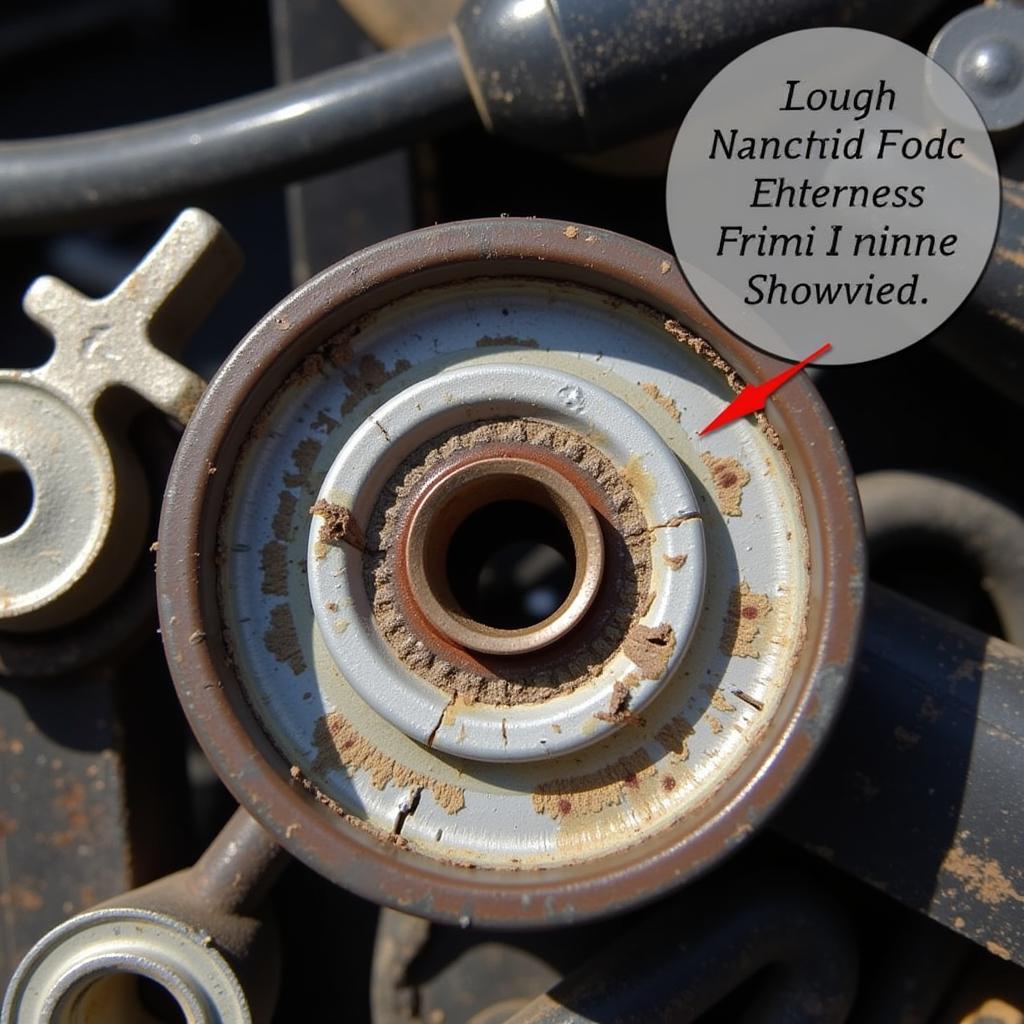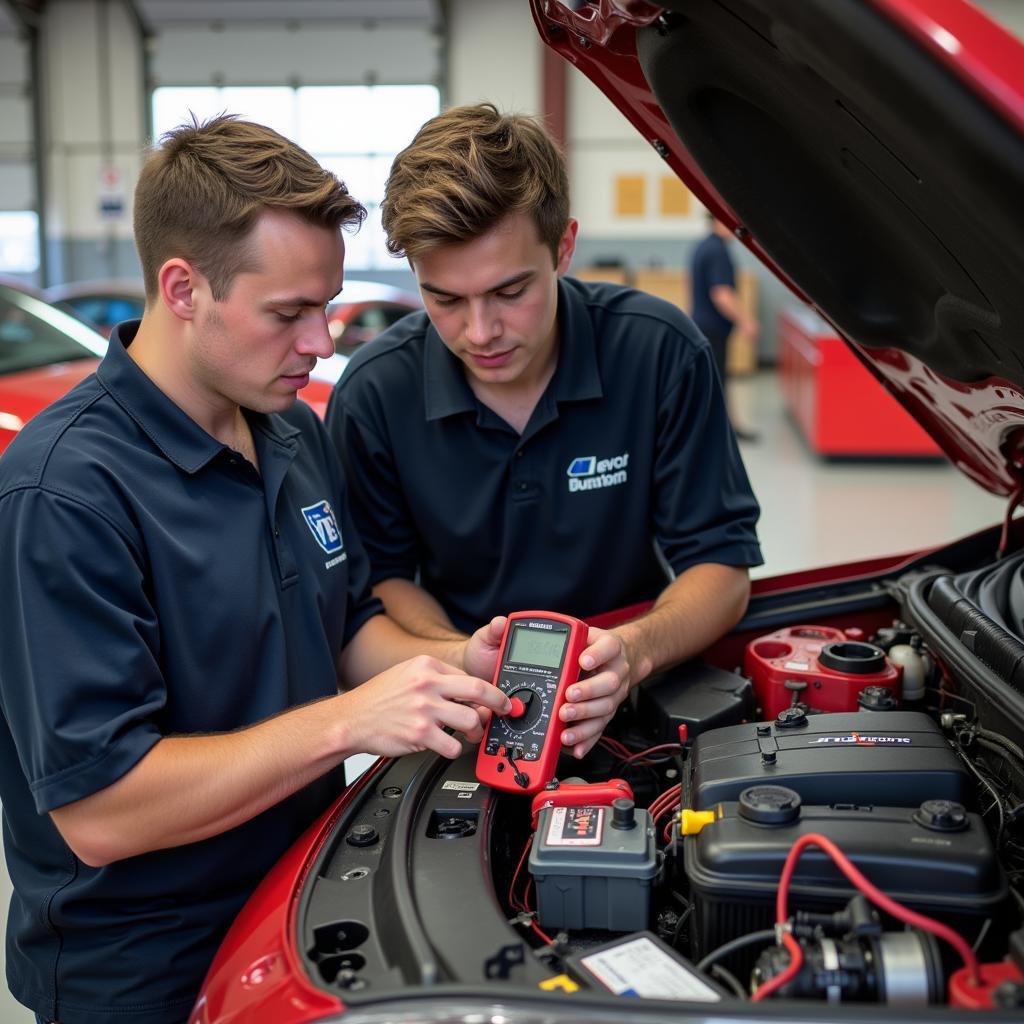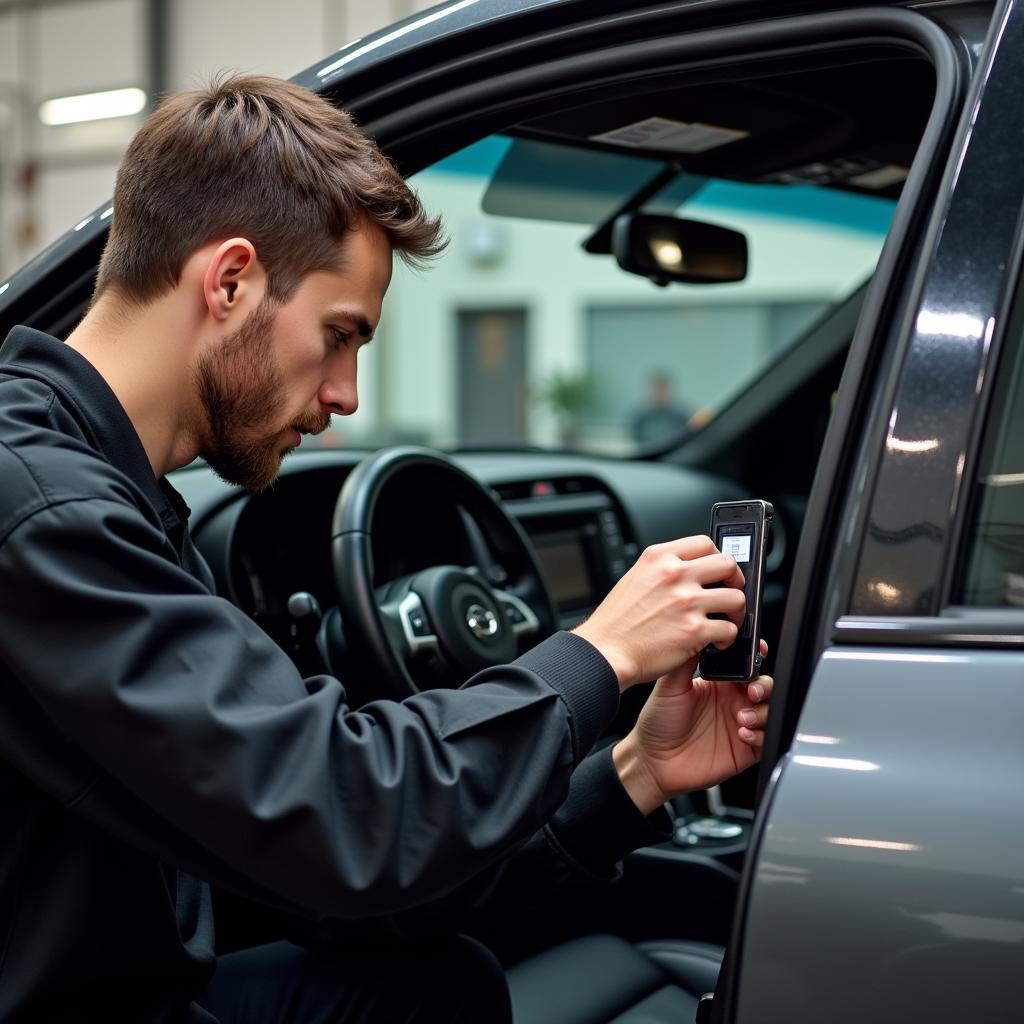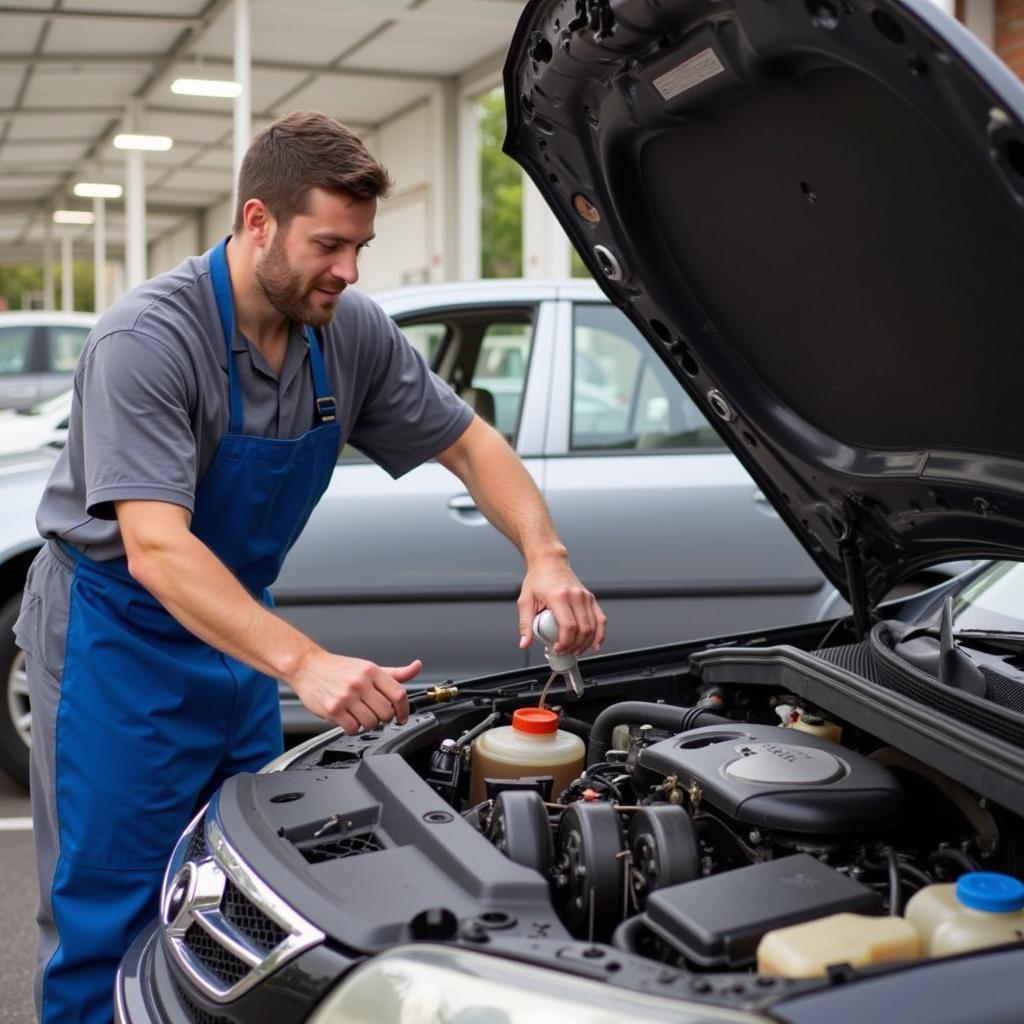If your car overheats, it can be a frustrating and potentially expensive problem. Understanding the potential causes is crucial to addressing the issue quickly and effectively. This article explores the most common reasons why your car overheats, providing insights and solutions to help you get back on the road safely.
Similar to car radiator problems overheating, a faulty radiator cap can lead to overheating.
Why is My Car Overheating?
Several factors can contribute to car overheating, from simple maintenance oversights to more complex mechanical failures. Pinpointing the root cause is the first step towards a solution.
Coolant Leaks
One of the most frequent culprits is a low coolant level caused by leaks. These leaks can occur in the radiator, hoses, water pump, or even within the engine itself. Check for visible signs of leakage, such as puddles under your car or a sweet smell emanating from the engine compartment.
Faulty Radiator Fan
The radiator fan plays a vital role in dissipating heat. If the fan isn’t working correctly, whether due to a blown fuse, a faulty relay, or a damaged motor, the engine can quickly overheat, especially at low speeds or when idling.
Thermostat Issues
The thermostat regulates the flow of coolant through the engine. A stuck closed thermostat prevents coolant circulation, leading to rapid overheating. Conversely, a thermostat stuck open can prevent the engine from reaching its optimal operating temperature, affecting performance and fuel efficiency.
 Faulty Thermostat Causing Car Overheating
Faulty Thermostat Causing Car Overheating
Water Pump Failure
The water pump circulates coolant throughout the engine. If the water pump fails, coolant circulation stops, causing the engine to overheat. Signs of a failing water pump include leaking coolant, a whining noise from the pump, and overheating.
Clogged Radiator
Over time, the radiator can become clogged with debris, rust, and sediment. This blockage restricts coolant flow and reduces the radiator’s ability to dissipate heat, resulting in overheating. Regular flushing and cleaning of the cooling system are essential preventative measures.
Just like a self problem in car, a malfunctioning water pump can cause a variety of issues, including overheating.
What to Do When Your Car Overheats
If your car starts to overheat, pull over to a safe location as soon as possible and turn off the engine. Avoid opening the radiator cap while the engine is hot, as pressurized coolant can cause severe burns. Wait for the engine to cool down completely before checking the coolant level.
Checking the Coolant Level
Once the engine is cool, carefully open the radiator cap and check the coolant level. If it’s low, add coolant to the reservoir. If the coolant level drops rapidly again, it indicates a leak that needs professional attention.
Seeking Professional Help
If you’re unsure about the cause of the overheating or if the problem persists, it’s crucial to seek professional help. A qualified mechanic can diagnose the issue accurately and perform the necessary repairs.
This resembles several basic car problems and solutions, emphasizing the importance of regular maintenance.
Preventing Car Overheating
Regular maintenance is key to preventing overheating problems. Ensure your cooling system is flushed and filled with fresh coolant according to the manufacturer’s recommendations. Inspect hoses and belts for wear and tear and replace them as needed. Have your thermostat and water pump checked regularly, especially as your car ages.
Conclusion
Car overheating can be a complex issue with various underlying causes. Understanding these causes and taking preventative measures can save you time, money, and frustration. By addressing the problem promptly and seeking professional help when necessary, you can ensure your car stays cool and reliable on the road. Contact AutoTipPro at +1 (641) 206-8880 or visit our office at 500 N St Mary’s St, San Antonio, TX 78205, United States for expert assistance with your car overheating issues.
Finding places nearby to fix car overheating problems can be crucial when facing this issue.
FAQs
-
What is the most common cause of car overheating? Low coolant levels due to leaks are often the primary culprit.
-
Can I drive my car if it’s overheating? No, continuing to drive an overheating car can cause severe engine damage.
-
How often should I check my coolant level? Checking your coolant level monthly is a good practice.
-
How often should I flush my cooling system? Consult your car’s owner’s manual for the recommended flushing interval, typically every two to three years.
-
What are the signs of a failing water pump? Leaking coolant, a whining noise, and overheating are common indicators.
-
Can a bad thermostat cause overheating? Yes, a stuck closed thermostat can restrict coolant flow and lead to overheating.
-
Is car overheating a serious problem? Yes, if left unaddressed, overheating can cause significant and costly engine damage.
Similar to the alero car 2004 overheating problems, various car models can experience specific overheating issues related to their design.







Leave a Reply